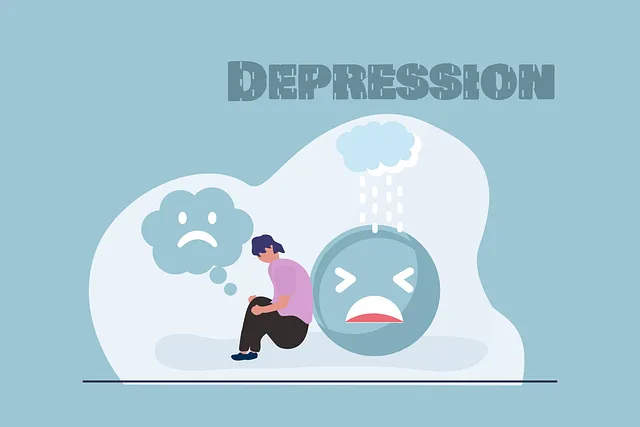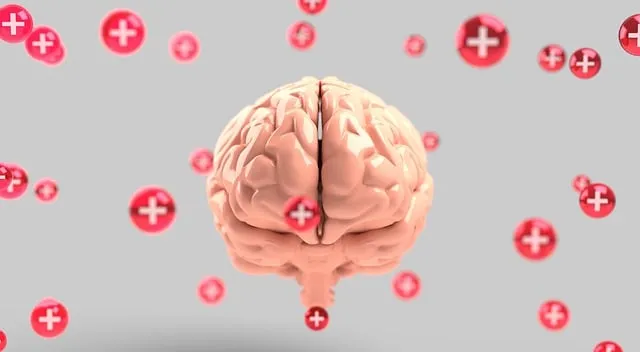Positive thinking exercises, offered by the Kaiser Permanente mental health access center in Greenwood Village, are powerful self-care tools for mental wellness. These exercises, including gratitude journaling and cognitive reframing, transform negative thoughts into optimism. Regular practice enhances well-being, reduces stress, and boosts resilience. Backed by research, these techniques improve mental health outcomes, relationships, and productivity. The center employs a holistic approach, integrating multimedia and established techniques like stress management and conflict resolution training. Their structured programs empower individuals to build inner strength and develop essential coping skills for life's challenges, aiming to enhance overall well-being and personal growth.
Positive thinking exercises have emerged as a powerful tool for enhancing mental well-being. This article explores the implementation of such practices, highlighting the essential role played by institutions like the Kaiser Permanente Mental Health Access Center in Greenwood Village. We’ll delve into the benefits of integrating daily positive thinking into your routine and provide strategies for effective implementation. Additionally, we’ll discuss how to overcome challenges and measure the success of these exercises.
- Understanding Positive Thinking Exercises
- The Role of Kaiser Permanente Mental Health Access Center in Greenwood Village
- Benefits of Integrating Daily Practice
- Strategies for Effective Implementation
- Overcoming Challenges and Measuring Success
Understanding Positive Thinking Exercises

Positive thinking exercises are a powerful tool for enhancing mental wellness and fostering inner strength development. Offered by various mental health access centers, such as Kaiser Permanente’s in Greenwood Village, these practices aim to cultivate optimism and reframe negative thoughts into more positive and constructive ones. By regularly engaging in such self-care practices, individuals can improve their overall well-being, reduce stress, and boost resilience.
The exercises often include techniques like gratitude journaling, affirmations, and cognitive reframing. For instance, a simple daily practice of writing down three things one is grateful for has been shown to increase happiness levels. Similarly, mental wellness coaching programs development can guide individuals in challenging negative thought patterns and replacing them with more realistic and positive perspectives. These exercises are accessible tools that empower people to take control of their mental health and cultivate a more optimistic outlook on life.
The Role of Kaiser Permanente Mental Health Access Center in Greenwood Village

The Kaiser Permanente Mental Health Access Center in Greenwood Village plays a pivotal role in promoting mental wellness within the community. This center serves as a comprehensive hub for individuals seeking support and resources for their mental health journey. Through various programs and services, it offers a safe space to explore and enhance emotional well-being. The center’s dedicated team provides expert guidance and utilizes innovative approaches, such as empathy-building strategies, to foster meaningful connections and facilitate self-esteem improvement.
By integrating these therapeutic techniques, the Kaiser Permanente Mental Health Access Center in Greenwood Village empowers individuals to navigate life’s challenges with resilience and hope. Their commitment to community outreach ensures that mental health support is accessible to all, fostering an environment where people can thrive and reach their full potential.
Benefits of Integrating Daily Practice

Integrating daily positive thinking exercises can significantly enhance one’s overall well-being, as supported by research from reputable institutions like the Kaiser Permanente Mental Health Access Center in Greenwood Village. These practices have been shown to reduce stress, anxiety, and depression, leading to improved mental health outcomes. Regular engagement in such activities fosters a sense of resilience, enabling individuals to navigate life’s challenges more effectively.
Beyond individual benefits, consistent positive thinking can contribute to better relationships and increased productivity. It promotes better communication and conflict resolution skills, as advocated by Mental Health Policy Analysis and Advocacy experts, and reduces the risk of mental health deterioration in high-pressure environments. Even when facing difficult situations, a positive mindset prepares individuals to handle conflicts constructively, as highlighted by Conflict Resolution Techniques, ultimately enhancing their ability to assess risks (Risk Assessment for Mental Health Professionals) and make sound decisions.
Strategies for Effective Implementation

Implementing positive thinking exercises requires a strategic approach to ensure maximum impact and engagement. At the Kaiser Permanente Mental Health Access Center in Greenwood Village, we focus on creating a supportive environment that encourages participants to embrace a more optimistic mindset. One effective strategy is to tailor these exercises to diverse learning styles, ensuring that visual, auditory, and kinesthetic learners can all actively participate. This might involve incorporating multimedia elements, interactive discussions, and hands-on activities.
Additionally, integrating established techniques like stress management workshops, trauma support services, and conflict resolution training can significantly enhance the effectiveness of positive thinking initiatives. These programs provide valuable tools for managing emotional challenges and fostering healthy relationships, which are essential components of a holistic well-being approach. By combining these strategies, the Kaiser Permanente Mental Health Access Center aims to empower individuals with practical skills to navigate life’s obstacles with resilience and positivity.
Overcoming Challenges and Measuring Success

Overcoming Challenges is a critical aspect of Positive Thinking Exercise implementation. At the Kaiser Permanente Mental Health Access Center in Greenwood Village, we understand that navigating life’s challenges can be overwhelming. Our approach focuses on empowering individuals to build Inner Strength and develop Coping Skills necessary for resilience. Through structured programs, we guide clients in cultivating a positive mindset, which is essential for managing stress and adversity. By integrating Mindfulness Meditation techniques, our centers create a calm space where individuals learn to observe their thoughts without judgment, fostering a deeper sense of peace and clarity.
Measuring Success in Positive Thinking Exercise implementation involves tracking the progress of individuals in adopting a more optimistic outlook. We assess improvements in mental well-being, stress reduction, and overall quality of life. Regular check-ins and feedback sessions allow our mental health professionals to tailor interventions, ensuring each client receives personalized support. The goal is not just to overcome challenges but to equip individuals with tools that enhance their ability to thrive despite life’s ups and downs.
Positive thinking exercises, with the support of institutions like the Kaiser Permanente Mental Health Access Center in Greenwood Village, offer substantial benefits for daily well-being. By integrating these practices into routine, individuals can experience improved mental resilience and overall life satisfaction. Through effective strategies and overcoming challenges, anyone can harness the power of positive thinking, revolutionizing their mindset and fostering a healthier, happier life. The Kaiser Permanente Mental Health Access Center’s role in promoting such exercises is invaluable, guiding folks towards navigating life’s challenges with renewed optimism.






